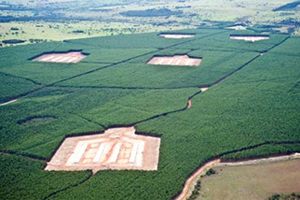Cobb pioneers compartmentalisation in Brazil

Cobb has become the first poultry breeding company in Brazil to achieve approval for its compartmentalisation project in accordance with the Terrestrial Animal Health Code of the World Health Organization for Animal Health (OIE).
The project has been validated by the OIE and now approved by the Brazilian Agriculture Ministry (MAPA).
The project was first discussed in 2000 and gained momentum in 2005 after the detection of large scale, highly pathogenic avian influenza in Southeast Asia. The aim was to create subpopulations through certifying the health of poultry at units with enhanced biosecurity.
Compartmentalisation increases control over bird health through the stricter biosecurity standards, with periodic risk audits, a traceability system and surveillance of both the flocks and wild animals around the units. In Brazil, the project is a partnership between MAPA and Ubabef (the Brazilian Poultry Union), with the participation of the private sector.
“Cobb’s participation in the project is based on the need to protect our genetic base, minimising the risk of avian influenza and Newcastle Disease,” said Cobb-Vantress Brasil technical manager Paulo Raffi. “This will facilitate international trade, provided compartmentalisation is officially recognised by the importing country as well as the Brazilian government.”
To develop its own compartment model covering the states of São Paulo, Minas Gerais and Mato Grosso do Sul, Cobb based the project strictly on OIE rules. The location and design of the farms, animal movement within and outside the compartment, control of pests, the flow of people and vehicles and water quality were evaluated. So, too, were equipment and facility disinfection, litter, feed and input quality, vaccines and medications, waste treatment, and movement of breeding stock, with recording of all procedures and monitoring flow of material and information.
“The OIE recognises that breeding companies already work as a compartment due to the need to protect their flocks from disease through stricter biosecurity plans than on commercial units,” said Raffi. “The main challenge was to complement this work with risk analysis, a traceability system and a monitoring program covering the flocks within and outside the compartment.”
A plan was established providing the ability to respond quickly and efficiently to any health emergency. To put it into practice, Cobb is training all employees, so that ‘alert’ conditions can be minimised or, where appropriate, addressed.
“This is easier in Brazil due to the high levels of biosecurity already established. We are working now on diagnostic capability and emergency response, especially monitoring for low pathogenic viruses and of wild birds around the compartment units.”
Jairo Arenazio, Cobb’s general manager for South America, said that Cobb is a pioneer in compartmentalisation in Brazil: “This initiative is at the root of the success of our business in South America and of our exports of breeding stock from Brazil. Without it, we would have had to create an alternative officially recognised regime to ensure the high health status of product for both domestic and especially international markets.
“At the moment the global poultry industry is facing up to the threat of avian influenza, We couldn’t let Brazil, which exports poultry to more than 150 locations around the world, be ‘held hostage’ to international regulations restricting bilateral trade. We had to create a new regime to ensure the high health status of our stock.”
To Jairo, compartmentalisation is simply a set of hygiene measures with routine monitoring to ensure that ‘nothing outside comes in, and nothing inside gets out.’
In other words, if there is any health challenge from diseases featured on OIE’s A list in areas surrounding a poultry operation, there are risk mitigation measures to ensure that this challenge does not affect the birds. There are also control measures to avoid transmission outside the compartment.
“With the new OIE regime Brazilian poultry farming is taking another major step towards global recognition of the high health standards of our industry and our products,’ he added. “Compartmentalisation will bring us even greater assurance on biosecurity. And I’m sure it is here to stay.”













